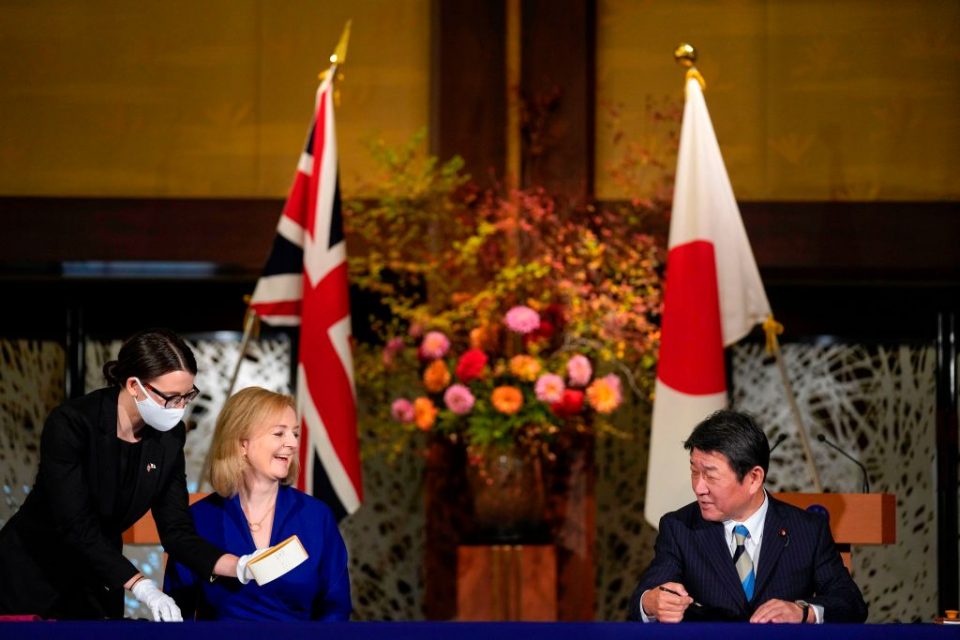Post-Brexit: City investors look beyond Europe as bounce back optimism grows

Investors searching for stronger returns post-Brexit are increasingly zooming in on the Far East, with Japan and China currently being the most attractive markets for UK investors.
According to new data that City-based bank and brokerage firm Charles Schwab shared with City A.M. this morning, around 68 per cent of investors in a recent survey consider Japan as a good investment destination.
This sentiment has largely been boosted by the Nikkei 225, as it has risen just over 22 per cent in the last six months.
In comparison, the pan-European Stoxx 600 increased 18 per cent during the same period, while the S&P 500 climbed just under 18 per cent since October of last year.
China and the US on investors’ radar
This shift to investing beyond Europe is borne out across the research. As British investors also view China as a significantly more attractive country for investment compared to a year ago.
Charles Schwab found that China has seen the biggest rise in attractiveness, now appealing to 60 per cent of investors, a jump of 15 per cent since May 2020.
Moreover, the U.S. has also become a more popular investment location. 67% of British investors consider it to be a more attractive market after November’s presidential election.
As a result, nearly one in five investors said they had invested more in the U.S. over the last three months.
“Faced with sluggish recoveries in UK and European markets, British investors are going global, turning to Japan, China and the US for higher returns,” said Richard Flynn, UK managing director at Charles Schwab.
Flynn told City A.M. that investors are more likely to look abroad for opportunities as their optimism increases.
Optimism is back
More than half of UK investors, or 53%, are optimistic about the outlook for global markets in the next 18 months. This represents an eight percentage-point increase compared to May of last year, Charles Schwab found.
In addition, almost half of investors have seen an increase in the value of their investments in the last three months. Again, this represents an improvement from May 2020 when just 29 per cent had seen a rise in the value of their investments.
“We’re seeing British investors becoming more bullish as the performance of their portfolios improves,” Flynn commented.
“The combination of a strong bounce back in the Far East coupled with confidence in the Biden administration positions these markets as the Big Three outside of the UK for investors,” he added.
The return of unloved sectors
As a result of this increased optimism, more than three-quarters of investors, or 77 per cent, see current conditions as a good opportunity to invest in undervalued assets.
Real Estate is now considered a good option by 69 per cent of investors, increasing from 60 per cent in May 2020.
The tourism and hospitality sector has also become more popular, as 40 per cent of investors viewing the sector as attractive. This represents a five percentage-point increase from last year, as the end of lockdown is in sight.
“Investors are now looking for green shoots of recovery in some of the sectors which were hit hardest by the impacts of the pandemic,” Flynn said.
“As we get closer to the end of lockdown, many investors are viewing these sectors as potentially undervalued and due for a rapid bounce back,” he stressed.
High Street out of favour
Not every sector that suffered during the pandemic has seen a rise in popularity.
Only 35 per cent of investors consider high street retail as an investment opportunity, falling from 37 per cent in May 2020.
Despite the more positive outlook, investors are still concerned about the impact of the pandemic.
More than six out of ten investors think it may have a negative impact on their investment portfolio over the long term. This suggests that most consider the economic scarring caused by the pandemic to be deep.
A further 70 per cent are concerned about future lockdowns and pandemics, which could mean they will be more cautious about future investments.
“Fears of a new COVID variant or a future pandemic continue to weigh on investors’ minds,” Flynn said, pointing out that the current volatile conditions remain a challenge for most investors.
